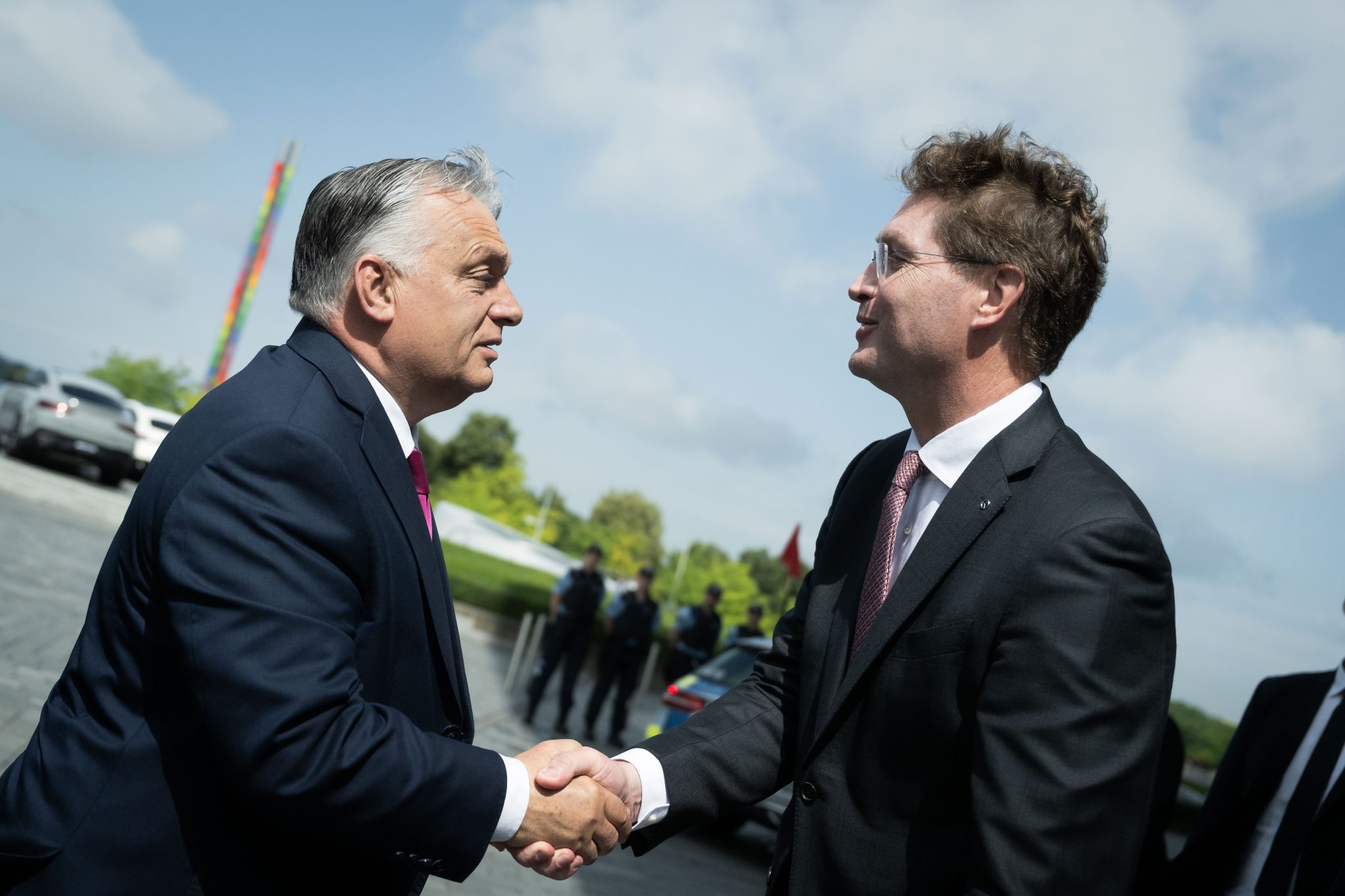
The German automotive giant is investing HUF 600 billion (EUR 1.5 billion) in Hungary.Continue reading
Hungary is committed to maintaining smooth cooperation between German car manufacturers and Eastern suppliers, crucial for the success of the electric car transition, Minister of Foreign Affairs and Trade Péter Szijjártó stated in Berlin on Friday.
After discussions with Andreas Radé, Managing Director of the German Association of the Automotive Industry (VDA), and Thomas Schwarz, Head of the Audi Representative Office in Berlin, Péter Szijjártó emphasized the revolutionary technological transformation in the automotive industry. German manufacturers are heavily investing in the electric transition, with tens of billions of euros directed towards research and development (R&D).
Hungary is an excellent example of how this transformation can be successful at both the national and company levels if international trade is free and there are no obstacles to economic cooperation,”
Minister Szijjártó said. “Blocking East-West business cooperation would hinder this progress,” he continued.
He criticized the European Commission’s proposal to impose tariffs on Chinese car manufacturers, arguing that it undermines free trade and competition. “This proposal could harm the European economy more than it helps,” he said. “During the Hungarian EU Presidency, we will ensure that the European Commission supports meaningful, mutually beneficial East-West cooperation.”
In Hungary, German car companies are successfully collaborating with Chinese, South Korean, and other Eastern partners. Hungary uniquely hosts all three major German premium car manufacturers alongside five of the ten largest Eastern battery manufacturers.
The success of the electrification transition depends on free and unhindered East-West cooperation, prioritizing competition,” Mr. Szijjártó stated.
He affirmed Hungary’s readiness to facilitate this cooperation, benefiting the Hungarian economy by supporting thousands of automotive jobs.
The Foreign Minister highlighted the deep interconnection between the Hungarian and German economies, noting Germany has been Hungary’s top trading partner for many years. Last year, bilateral trade reached a record high of over 70 billion euros. German companies have consistently been the largest investors in Hungary.
The Hungarian government has signed strategic cooperation agreements with sixteen German companies and supported investments from 201 German companies over the past decade, creating nearly 40,000 new jobs,” he said.
“At some points, these two economies have even grown together,” he added. “The German car industry has clearly voted for Hungary,” Minister Szijjártó concluded.
Via MTI; Featured Image: Facebook / BMW Group